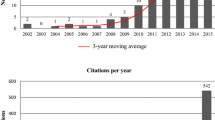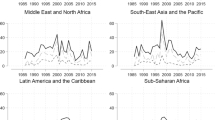We don’t need no education….
Roger Waters, “Another Brick in the Wall”, 1979
Abstract
Financial Literacy is a specific component of human capital which allows individual to deal with fundamental financial issues so as to take adequate financial decisions. After presenting the theoretical foundations of this notion, establishing its definition and reviewing the empirical literature, this paper presents recent studies about the link between financial literacy and financial decisions of the population in France using an original survey. The results suggest that financial literacy varies across the population. It is correlated with education but also with gender, age and political affiliation. This last point could reflect differences in opinion regarding the role of welfare state and individual responsibility. Finally, the link between financial literacy and some financial behaviors (the propensity to formulate a specific financial plan in the long run on the one hand and the propensity to own stocks on the other hand) is evaluated: in both cases positive correlations with financial literacy variables are found. We conclude with a reflection on the relative status of financial education to explain the investments of households and judge the effectiveness of training programs in the economic culture.

Source: PATER survey, 2011 (from Arrondel et al. 2013. Financial Literacy and Financial Planning in France. Numeracy.6:2, Article 8.)
Similar content being viewed by others
Notes
Or, in the words of Thaler (2000), “From Homo Economicus to Homo Sapiens”.
Waxing much more lyrical, Paul H. O'Neill, former Secretary of the US Department of the Treasury, delivered essentially the equivalent message in 2002: “Financial education can be compared to a road map to the American Dream. I believe that we need to teach all Americans the necessary tools to read that map, so that they can reach the Dream”.
Annamaria Lusardi speaking to the Global Financial Literacy Summit in 2013.
This does not appear to be the case with the French households in the PATER survey, whereby some 75% of them rate their financial knowledge as poor or very poor, if not non-existent.
As instrumental variables, we used a variable on parents’ reading frequency of economic and financial press and another regarding whether respondents’ parents planned for retirement or not. We also used a variable assessing the level in mathematics the respondent had when he was at school. The estimated residual of the regression of financial literacy on the instruments and other exogenous variable is not significant in the financial planning equation.
In another paper, Arrondel and Masson (2017) analyse why does household demand for shares decline during the crisis. This study used same French data from the various waves of the PAT€R survey which offer a unique perspective on savers over time, before and after the 2008 crisis, up to end-2014. The surveys take stock of household assets and provide subjective information with which to measure, using a variety of methods, individual preferences with regard to risk, their expectations about the labour market and the stock market and financial literacy. The key findings are the following: the investments of French savers were less and less frequently placed in risky assets during the crisis; this results in part from their having adjusted their expectations downward as regards yield from shares and shocks on current resources; the preferences and financial literacy of French households with regard to risk remained stable during the crisis.
Jappelli and Padula (2013) argue that the stock of financial literacy early in life is a valid instrument in the regression of wealth on financial literacy.
References
Agnew, J.R., H. Bateman, and S. Thorp. 2013. Financial Literacy and Retirement Planning in Australia. Numeracy 6(2): 1–25.
Alessie, R., M. Van Rooij, and A. Lusardi. 2011. Financial literacy and retirement preparation in the Netherlands. Journal of Pension Economics and Finance (10): 527–545.
Almenberg, J., and J. Säve-Söderbergh. 2011. Financial Literacy and Retirement Planning in Sweden. Journal of Pension Economics and Finance 10(4): 585–598.
Ameriks, J., A. Caplin, and J. Leahy. 2003. Wealth Accumulation and the Propensity to Plan. Quarterly Journal of Economics 118(3): 1007–1047.
Arrondel, L., H. Calvo-Pardo, C. Giannitsarou, and M. Haliasos. 2017. Informative Social Interactions, 267. New York: Mimeo.
Arrondel, L., M. Debbich, and F. Savignac. 2013. Financial Literacy and Financial Planning in France. Numeracy 6(2): 8.
Arrondel, L., M. Debbich, and F. Savignac. 2015. Stockholding in France: The Role of Financial Literacy and Information. Applied Economics Letters 22(16): 1315–1319.
Arrondel, L., and A. Masson. 2006. Altruism, Exchange or Indirect Reciprocity: What Do the Data on Family Transfers Show? In The Economics of Giving, Reciprocity and Altruism, ed. J. Mercier-Ythier and S.C. Kolm, 971–1053., Chapitre 14 Amsterdam: North Holland.
Arrondel, L., and A. Masson. 2014. Mesurer les préférences des épargnants: comment et pourquoi (en temps de crise)? Économie and Statistique 467–468: 5–49.
Arrondel, L., and A. Masson. 2017. Why Does Household Demand for Shares Decline During the Crisis? The French Case. Economics and Statistic 494-495-496: 155–178.
Barber, B.M., and T. ODEAN. 2001. Boys Will Be Boys: Gender, Overconfidence and Common Stock Investment. Quarterly Journal of Economics 116(1): 261–292.
Beckmann, E. 2013. Financial Literacy and Household Savings in Romania. Numeracy 6(2): 1–22.
Brown, M., and R. Graf. 2013. Financial Literacy and Retirement Planning in Switzerland. Numeracy 6(2): 1–21.
Bucher-Koenen, T., and B. Lamla. 2016. The Long Shadow of Socialism: On East-West German Differences in Financial Literacy. New York: Mimeo.
Bucher-Koenen, T., and A. Lusardi. 2011. Financial Literacy and Retirement Planning in Germany. Journal of Pension Economics and Finance 10(4): 565–584.
Castel, R. 2011. Les ambiguïtés de la promotion de l’individu. In Refaire Société, ed. P. Rosenvallon. Paris: La République des idées.
Christelis, D., T. Jappelli, and M. Padula. 2010. Cognitive Abilities and Portfolio Choice. European Economic Review 54: 18–38.
Crossan, D., D. Feslier, and R. Hurnard. 2011. Financial Literacy and Retirement Planning in New Zealand. Journal of Pension Economics and Finance 10(4): 619–635.
Debbich, M. 2016. Why Financial Advice Cannot Substitute for Financial Literacy? Banque de France, Working Paper, n 534.
Fornero, E. 2015. Economic-Financial Literacy and (Sustainable) Pension Reforms: Why the Former Is a Key Ingredient for the Latter. Bankers, Markets & Investors 134(janvier–février): 6–16.
Fornero, E., and C. Monticone. 2011. Financial Literacy and Pension Plan Participation in Italy. Journal of Pension Economics and Finance 10(4): 547–564.
Friedman, M. 1953. Essays in Positive Economics. Chicago: University of Chicago Press.
Garon, S. 2011. Beyond our Means: Why America Spends While the World Saves. Princeton: Princeton University Press.
Gollier, C. 2001. The Economics of Risk and Time. Cambridge: MIT Press.
Gollier, C. 2013. Édito, Les cahiers Louis Bachelier, n° 8, février.
Grinblatt, M., M. Keloharju, and J. Linnainmaa. 2011. IQ and Stock Market Participation. Journal of Finance 66(6): 2121–2164.
Guiso, L., and T. Jappelli. 2005. Awareness and Stock Market Participation. Review of Finance 9: 537–567.
Guiso, L., and T. Jappelli. 2007. Information Acquisition and Portfolio Performance. EUI, WP ECO n° 2007/45.
Guiso, L., P. Sapienza, and L. Zingales. 2008. Trusting the Stock Market. Journal of Finance 63(6): 2557–2600.
Guiso, L., and P. Sodini. 2013. Household Finance: An Emerging Field., Handbook of the Economics of Finance, chapitre 21 Amsterdam: Elsevier.
Haliassos, M. 2003. Stockholding: Recent Lessons from Theory and Computations. In Stockholding in Europe, ed. L. Guiso, M. Haliassos and T. Jappelli, 30–51. New York: Palgrave Macmillan Publishers.
Haliassos, M., and C. Bertaut. 1995. Why Do So Few Hold Stocks? Economic Journal 105(432): 1110–1129.
Hass, P. 2014. L’intérêt des Français pour l’économie et leur perception de la situation économique en 2014, Résultats du sondage présentés aux Journées de l’économie. Bulletin de la Banque de France 198(4): 33–39.
Hasting, J.S., B.C. Madrian, and W.L. Skimmyhorn. 2013. Financial Literacy, Financial Education and Economic Outcomes. Annual Review of Economics, Annual Reviews 5(1): 347–373.
Hong, H., J. Kubik, and J. Stein. 2004. Social Interaction and Stock-Market Participation. Journal of Finance 59(1): 137–163.
Jappelli, L., and M. Padula. 2013. Investment in Financial Literacy and Saving Decisions. Journal of Banking & Finance 37(8): 2779–2792.
Jouini, E., S. Benmansour, and C. Napp. 2006. Is There a “Pessimistic” Bias in Individual Beliefs? Evidence from a Simple Survey. Theory and Decision 61(4): 345–362.
Kimball, M. 1993. Standard Risk Aversion. Econometrica 61(3): 589–611.
Klapper, L.F., and G.A. PANOS. 2011. Financial Literacy and Retirement Planning: the Russian Case. Journal of Pension Economics and Finance 10(4): 599–618.
Kocherlakota, N.R. 1996. The Equity Premium: It’s Still a Puzzle. Journal of Economic Literature 34(1): 42–71.
Lusardi, A. (ed.). 2009. Overcoming the Saving Slump: How to Increase the Effectiveness of Financial Education and Saving Programs. Chicago: University of Chicago Press.
Lusardi, A., and O.S. Mitchell. 2011. Financial Literacy and Retirement Planning in the United States. Journal of Pension Economics and Finance 10(4): 509–525.
Lusardi, A., and O. Mitchell. 2014. The Economic Importance of Financial Literacy: Theory and Evidence. Journal of the Economic Literature 52(1): 5–44.
Mehra, R., and E.C. Prescott. 1985. The Equity Premium: A Puzzle. Journal of Monetary Economics 15(2): 145–161.
Merton, R.C. 1969. Lifetime Portfolio Selection under Uncertainty: The Continuous Time Case. Review of Economic Studies 51: 247–257.
Modigliani, F., and R. Brumberg. 1954. Utility Analysis and the Consumption Function: An Inter- Pretation of Cross-section Data. In Post-Keynesian Economics, ed. K.K. Kurihara, 388–436. New Brunswick: Rutgers University Press.
Rémond, R. 1969. The Right Wing in France: From 1815 to de Gaulle. Philadelphia: University of Pennsylvania Press.
Saint-Paul, G. 2012. Liberté and société post-utilitariste. Toulouse School of Economics, Working Papers, n° 12–339.
Sekita, S. 2011. Financial Literacy and Retirement Planning in Japan. Journal of Pension Economics and Finance 10(4): 637–656.
Shiller, R.J. 2008. The Subprime Solution: How Today’s Global Financial Crisis Happened, and What to Do About It. Princeton: Princeton University Press.
Stolper, O.A., and A. Walter. 2017. Financial Literacy, Financial Advice, and Financial Behaviour. Journal of Business Economics 87(5): 581–643.
Thaler, R.H. 2000. From Homo Economicus to Homo Sapiens. Journal of Economic Perspectives 14(1): 133–141.
van Rooij, M., A. Lusardi, and R. Alessie. 2011. Financial Literacy and Stock Market Participation. Journal of Financial Economics 101: 449–472.
Vissing-Jorgensen, A. 2004. Perspectives on Behavioural Finance: Does Irrationality Disappear with Wealth? Evidence from Expectations and Actions. In The NBER Macroeconomics Annual, ed. M. Gertler, and K. Rogoff. MIT Press: MIT Press.
Acknowledgements
The author gratefully acknowledges CEPREMAP for their support to write this article on the Public Finance and Redistributive Policies research programme. The article was presented to the AMF scientific conference on 20 June 2016. It draws largely on the findings of two studies by Arrondel et al. (2013, 2015). Comments of Laurent Clerc, Paul Wachtel and two anonymous referees have been welcome. Thanks are also due to Michel Bibard for his really useful editing.
Author information
Authors and Affiliations
Corresponding author
Rights and permissions
About this article
Cite this article
Arrondel, L. Financial Literacy and Asset Behaviour: Poor Education and Zero for Conduct?. Comp Econ Stud 60, 144–160 (2018). https://doi.org/10.1057/s41294-018-0053-9
Published:
Issue Date:
DOI: https://doi.org/10.1057/s41294-018-0053-9




